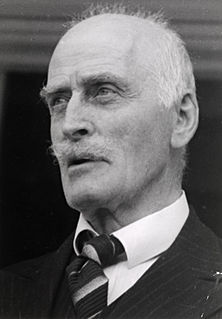A Quote by Michel Foucault
In the Middle Ages and the Renaissance, man's dispute with madness was dramatic debate in which he confronted the secret powers of the world; the experience of madness was clouded by images of the Fall and the Will of God, of the Beast and the Metamorphosis, and of all the marvelous secrets of Knowledge
Related Quotes
In the Renaissance, madness was present everywhere and mingled with every experience by its images or its dangers. During the classical period, madness was shown, but on the other side of bars; if present, it was at a distance, under the eyes of a reason that no longer felt any relation to it and that would not compromise itself by too close a resemblance. Madness had become a thing to look at: no longer a monster inside oneself, but an animal with strange mechanisms, a bestiality from which man had long since been suppressed.
In western civilization, the period ruled by mysticism is known as the 'Dark Ages' and the 'Middle Ages'. I will assume that you know the nature of that period and the state of human existence in those ages. The Renaissance broke the rules of the mystics. "Renaissance" means the "rebirth". Few people today will care to remind you that it was a rebirth of reason - of man's mind.
But now the world breaks in on us, the world is shocked, the world looks upon our idyll as madness. The world maintains that no rational man or woman would have chosen this way of life - therefore, it is madness. Alone I confront them and tell them that nothing could be saner or truer! What do people really know about life? We fall in line, follow the pattern established by our mentors. Everything is based on assumptions; even time, space, motion, matter are nothing but supposition. The world has no new knowledge to impart; it merely accepts what is there.
Madness, provided it comes as the gift of heaven, is the channel by which we receive the greatest blessings... the men of old who gave things their names saw no disgrace or reproach in madness; otherwise they would not have connected it with the name of the noblest of arts, the art of discerning the future, and called it the manic art... So, according to the evidence provided by our ancestors, madness is a nobler thing than sober sense... madness comes from God, whereas sober sense is merely human.
In the century that has just passed, many of the intellectual elite went mad. It was as if, with the death of God, everyone suddenly turned into a saviour who wanted either to annihilate the obsolete world order or to establish a utopia. Naturally, there were writers among those who went mad. The fact that they had knowledge did not exempt intellectuals: there is madness everywhere. When one loses control over one's self, the result is madness.
For the world is broken, sundered, busted down the middle, self ripped from self and man pasted back together as mythical monster, half angel, half beast, but no man...Some day a man will walk into my office as a ghost or beast or ghost-beast and walk out as a man, which is to say sovereign wanderer, lordly exile, worker and waiter and watcher.
The constitution of madness as a mental illness, at the end of the eighteenth century, affords the evidence of a broken dialogue, posits the separation as already effected, and thrusts into oblivion all those stammered, imperfect words without fixed syntax in which the exchange between madness and reason was made. The language of psychiatry, which is a monologue of reason about madness, has been established only on the basis of such a silence.






































